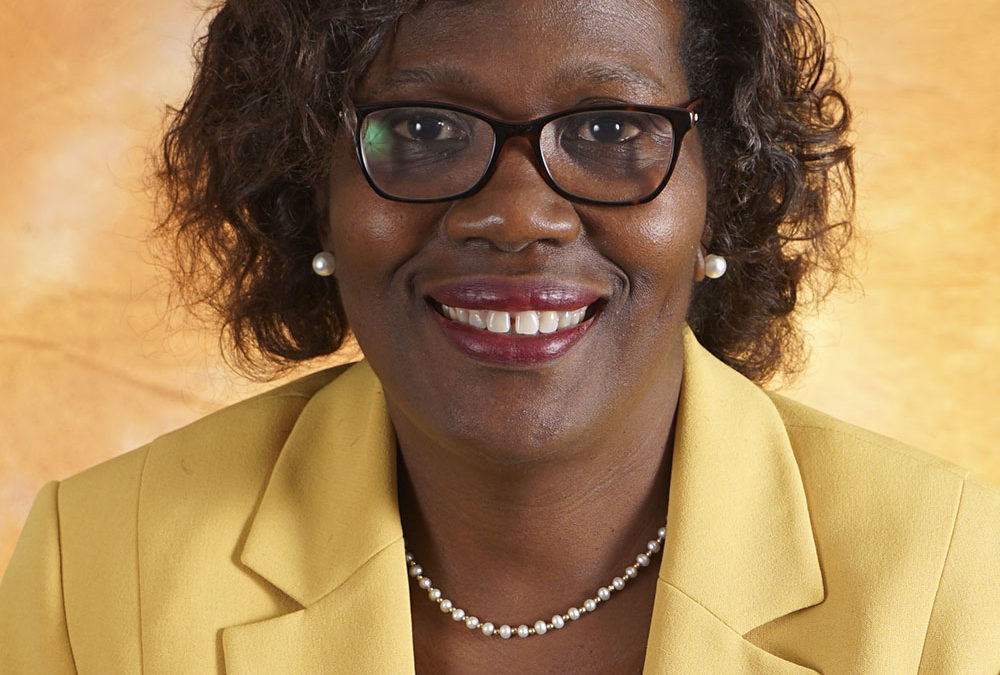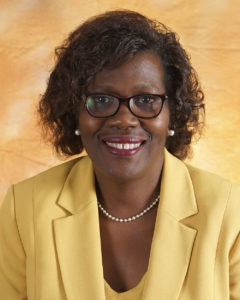Earlier this fall, Vanderbilt University School of Nursing named Dr. Rolanda Johnson, PhD, MSN, RN as the new Assistant Dean for Diversity and Inclusion. Johnson, who is also the assistant dean for academics and associate professor of nursing, has replaced Assistant Professor Jana Lauderdale, who returned to her faculty role. Johnson is continuing to shape and foster VUSN’s environment of inclusivity. We spoke with Dr. Johnson to learn more about her experience and her goals for VUSN.
What has been your career path so far and how has it led you to your current role as assistant dean of diversity and inclusion?
My desire to work as a health care professional began when I was elementary age. As an 11th grader, I decided to attend nursing school. I completed my Bachelor of Science in Nursing degree at Tuskegee University in 1985. Those were very formative years of training and education when I gained a wide range of clinical experiences with diverse populations. After graduating from Tuskegee University, I worked in a community hospital in Montgomery, AL, at Fairview Medical Center where I was exposed to people who I now know had limited access to health care. At Fairview Medical Center, I witnessed a sense of family among employees who were dedicated to providing the highest level of quality care to all that were in need with genuine caring attitude. I later began employment at Jackson Hospital in Montgomery, AL, working in numerous roles including that of nurse educator and clinical nurse specialist. During this time, I obtained a Master of Science in Nursing from Troy State University located in Troy, AL. Working as a nurse educator, I developed a desire to have a greater impact on African American health. Shortly, thereafter I began doctoral studies at Vanderbilt University and later obtained a Doctorate of Philosophy in Nursing Science degree. I have worked in numerous roles of nursing including clinician, educator, researcher and administrator, which led to my current position.
How has your professional background influenced your passion for diversity and inclusion?
Throughout my education trajectory, I have always been keenly aware of the health disparities and inequities some groups of individuals face. I am employed in Nashville while residing and working with my husband in an extremely underserved rural county in Mississippi. The social determinates of health naturally impact the health status of many. Who you are, where you live and what you have, sadly, monumentally impacts the quality of care one receives and access to health. As an educator, I work with students across the spectrum who are often impacted by these factors either individually or through family and friends. For me, all of these experiences have translated to my desire to make a difference in the lives of those that are often overlooked and to help others see the integration of all facets that impact the lives of our students and their performance.
Where did your passion for diversity and inclusion in the nursing field begin?
My passion for diversity and inclusion began during my studies at Tuskegee University. Those were very formative years of training and education. The wide range of clinical experiences with populations across the socioeconomic spectrum and from rural Tuskegee, AL, to metropolitan Atlanta, GA, opened my eyes to the varying degrees of heath care and access for different groups of people. Naturally, at that time I could only assess health disparities from my early developmental lens but these experiences have proven to be instrumental in guiding my nursing career.
For the past 20 years, I have resided in Macon, MS, a low-income, rural community, and have been employed approximately 300 miles away in metropolitan Nashville, TN. This has afforded me the opportunity to observe health care delivery cycles and the degree of effectiveness across diverse populations including associated gaps and health disparities. This phenomenon has fueled my passion to educate advanced practice nurses who will be equipped to fill these gaps and better meet the health care needs of all populations. The key to have advanced practice nurses who can deliver quality culturally sensitive health care.
How do you define diversity and inclusion at Vanderbilt?
Within VUSN, our core belief is that all students, staff and faculty regardless of our differences should feel included and equitable. This is reflected in the VUSN diversity and inclusivity statement, which states at VUSN “we are intentional about and assume accountability for fostering advancement and respect for equity, diversity and inclusion for all students, faculty and staff.” The full statement can be found on the VUSN website.
What are you most excited about with your new position?
The most important part of my new role is the possibility of enhancing the culture climate within VUSN and creating a path for continued improvement for years to come. I am humbled to be a part of this endless journey. I hope to leave an indelible imprint of creating a difference in this area within VUSN.
What strategies do you feel will have the most positive impact on the Vanderbilt Nursing community?
The umbrella strategy is to transform the level of diversity and inclusion within VUSN by minimizing bias across our core areas of academics, faculty practice, research and informatics among faculty, staff and students. Additional strategies will be to improve the cultural climate of VUSN for all students, faculty and staff and to increase the diversity representation among faculty, staff and students.
What are the biggest challenges that you will face in your new role?
The biggest challenge is to keep the diversity and inclusion momentum moving forward within VUSN. Within any organization, change is often difficult and once that change has occurred, it is so easy to be complacent with past accomplishments. The test is to bask in accomplishments for the moment and then move forward to the next challenge and goal.
What diversity goals do you have for yourself and Vanderbilt’s School of Nursing?
My goal is to pursue a high level of excellence in health care by finding creative ways to deliver this level of care to underserved populations. From a diversity and inclusive view, I desire to minimize bias, improve the cultural climate and increase diversity representation in faculty, staff and students within VUSN.
What is a fun fact about you?
I am a college football fanatic.
- Apply now to get featured on NursesGetCertified.com! - November 19, 2018
- A Q&A with Vanderbilt School of Nursing’s New Assistant Dean for Diversity and Inclusion - October 19, 2018




